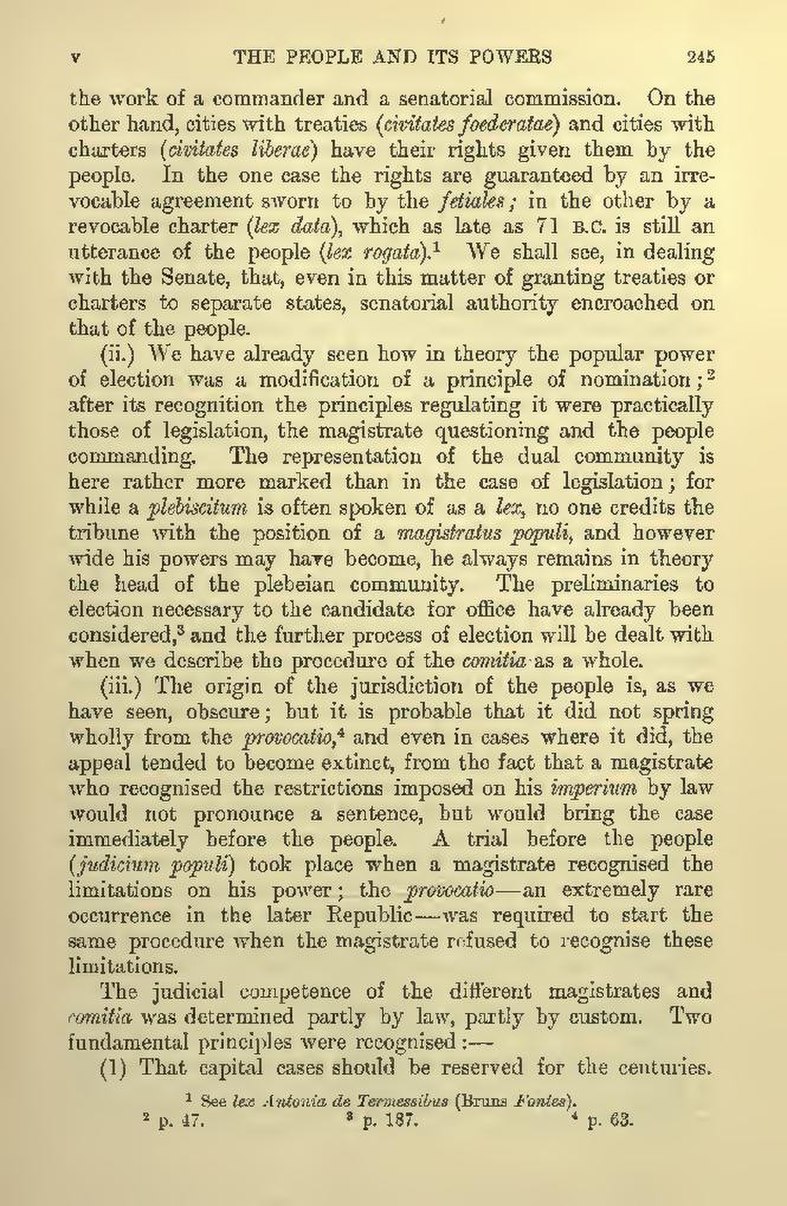the work of a commander and a senatorial commission. On the other hand, cities with treaties (civitates foederatae) and cities with charters (civitates liberae) have their rights given them by the people. In the one case the rights are guaranteed by an irrevocable agreement sworn to by the fetiales; in the other by a revocable charter (lex data), which as late as 71 B.C. is still an utterance of the people (lex rogata).[1] We shall see, in dealing with the Senate, that, even in this matter of granting treaties or charters to separate states, senatorial authority encroached on that of the people.
(ii.) We have already seen how in theory the popular power
of election was a modification of a principle of nomination;[2]
after its recognition the principles regulating it were practically
those of legislation, the magistrate questioning and the people
commanding. The representation of the dual community is
here rather more marked than in the case of legislation; for
while a plebiscitum is often spoken of as a lex, no one credits the
tribune with the position of a magistratus populi, and however
wide his powers may have become, he always remains in theory
the head of the plebeian community. The preliminaries to
election necessary to the candidate for office have already been
considered,[3] and the further process of election will be dealt with
when we describe the procedure of the comitia as a whole.
(iii.) The origin of the jurisdiction of the people is, as we
have seen, obscure; but it is probable that it did not spring
wholly from the provocatio,[4] and even in cases where it did, the
appeal tended to become extinct, from the fact that a magistrate
who recognised the restrictions imposed on his imperium by law
would not pronounce a sentence, but would bring the case
immediately before the people. A trial before the people
(judicium populi) took place when a magistrate recognised the
limitations on his power; the provocatio—an extremely rare
occurrence in the later Republic—was required to start the
same procedure when the magistrate refused to recognise these
limitations.
The judicial competence of the different magistrates and comitia was determined partly by law, partly by custom. Two fundamental principles were recognised:—
(1) That capital cases should be reserved for the centuries.
